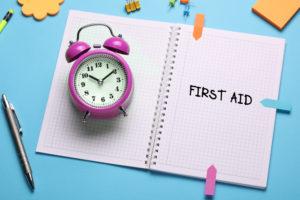
For those who reside in the UK, the idea of being 'emergency prepared' doesn't occur very often. Not so, though, those who live in other countries; even First World countries like the United States, Italy or Japan, where natural disasters like earthquakes, tornadoes and even tsunamis can be relatively common.
For the Brit then - or indeed anyone from pretty much anywhere - travelling abroad (and depending on where you're going), it's advisable to think about whether you're actually prepared if an emergency strikes; do you know what kit you'd need in such a scenario, how to pack it and what to do with it? If the answer to those questions is no, then you may want to read on.
First of all, when preparing an emergency preparedness kit, you'll first want something to pack it into; however, be aware that it can't be too cumbersome or too heavy.
For emergencies on the road
If you're travelling by car, naturally you can keep your kit in the boot or trunk, but also make sure your vehicle contains the necessary equipment for changing a tire (a reliable jack, an inflated spare tire and a tire iron). Additionally, if you're planning on driving in an unfamiliar part of the world - and especially away from 'civilisation' - you should make sure your car also contains:
- an adjustable wrench
- antifreeze
- a blanket
- brake fluid
- duct tape
- a flashlight with new batteries
- an ice scraper
- jump cables
- pliers
- rags and paper towels
- roadside flares
- screwdrivers (Phillips and non-Phillips)
- a small measure of additional oil
- spare fuses
- a tire inflator and pressure gauge
- washer fluid
- work/ latex gloves.
Essential items in an emergency
Whether you're travelling by car or out and about on foot (say, hiking or relying on public transport), then you should definitely consider putting together a general emergency - or if you prefer - survival kit. If should contain the following:
- a flashlight
- a first aid kit (comprising bandages, plasters, gauzes, antibacterial creams and antiseptic wipes)
- medication (if you have specific medication/ tablets, make sure they're with you)
- hygiene/ sanitation items
- map of the surrounding area
- matches
- a mobile phone and charger (if you have an overseas contract)
- non-perishable and easy-to-prepare food (granola bars could be a must)
- personal document copies (passport, medication list/ information, travel insurance and emergency contact details)
- a supply of new batteries
- water (as much it's possible to carry)
- a whistle
Additional items for an emergency
If you can also transport the following with you, it would be a good idea to do so; granted, it would be difficult to carry them all on your person, so these are essentially items that would be advisable to take with you if travelling in a vehicle:
- blankets and/ or a sleeping bag
- liquid bleach (do your research - it can purify water!)
- more clothing for warmth (including a hat and gloves)
- nutrients and supplements (in addition to food supplies, make sure you have access to good nutrition; you might consider supplements such as Suntrex D3 (contains Vitamin D3 for immunity and organ and bone health) and NADH supplement (for maintaining your mental clarity, alertness, concentration and memory)
- rainwear (a cagoule or anorak with a hood)
- scissors
- sturdy shoes
- towels
If you're with friends or family members - or those you're responsible for, (i.e. children or elderly people) - be sure to have the following with you too:
- baby items (baby food, bottles and nappies)
- a can opener
- contact lenses, glasses and hearing aids and batteries
- games and colouring books (to keep children occupied)
- medication
- mobile phones and chargers
Finally, a point that's easy to overlook - it's important you're familiar with what you've packed before you're actually faced with an emergency. Who knows how they're likely to react or behave in that situation; it's quite possible you may quickly become flustered, so you'll need to know how to handle and work all your bits and pieces and how much to take - and just how perishable are - all your consumable items.
Overall, though, whatever you take with you, the most critical and reliable thing you'll have to hand is own common sense and judgment; don't forget it!
Comments
comments

